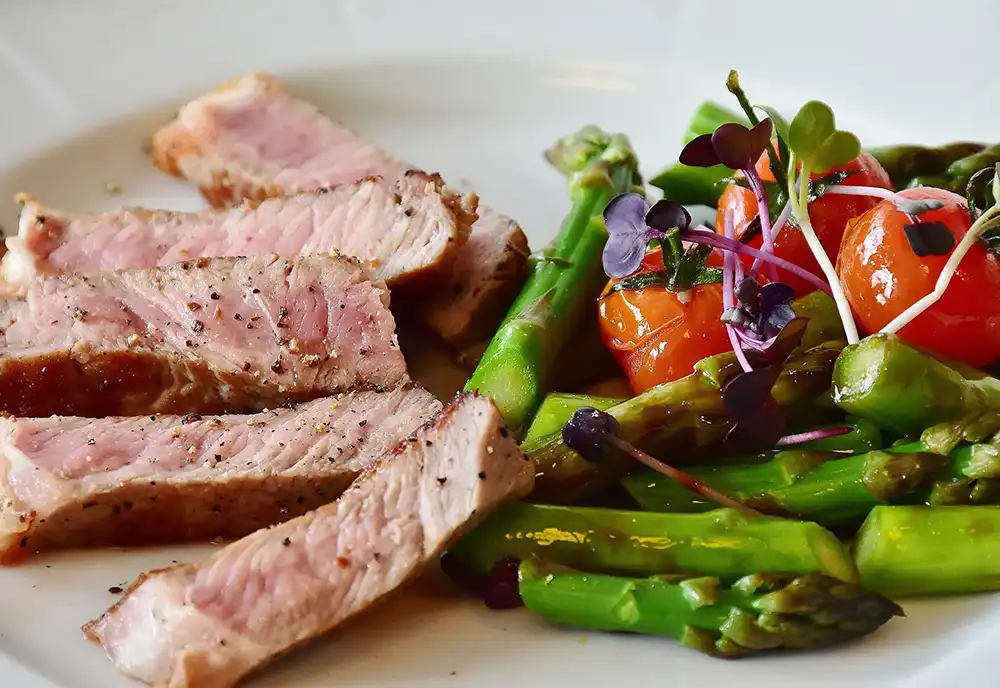Overcoming the Challenges of a Low-Carb Lifestyle

As a health and fitness professional
I can attest to the significance of maintaining a healthy body weight. One popular method to accomplish this is by embracing a low-carb diet and lifestyle.
While numerous studies and the experience of countless practitioners can attest to the effectiveness of restricting carbohydrate intake, a low-carb diet is not without potential negative outcomes.
Personal Experience
In this article, I'll share my personal experience and provide a comprehensive guide on low-carb diet side effects. I'll also offer some tips on how to minimize these effects and ensure that your body receives the nutrients it needs.
Understanding the Low-Carb Diet
Before discussing the side effects of a low-carb diet, let's first clarify what it is. A low-carb diet restricts carbohydrate intake, typically to less than 100 grams per day. And often much less than that, especially when beginning the diet. This reduction compels the body to burn fat for energy rather than glucose.
There is a wide variety of low-carb diets
but they all involve limiting high-carbohydrate foods such as bread, pasta, rice, and sugary foods. The diet primarily emphasizes consuming foods rich in proteins and healthy fats.
Potential Side Effects of a Low-Carb Diet

Headaches
Many, if not most, people who embark on a low carb journey experience headaches during the first few days. The body's adjustment to reduced carbohydrate intake and a subsequent drop in blood sugar levels cause this. Staying well-hydrated and consuming the recommended daily intake of sodium goes a long way toward mitigating the headaches.
Fatigue
Another possible side effect from restricting carbohydrates is fatigue. This is due to the body adapting to the decreased glycogen stores in the muscles. To address this, it’s important to consume enough calories and electrolytes, though the calories must necessarily come mostly from fat and protein.
Most people experience fatigue only in the first few days as the body’s metabolism adjusts to burning stored fat for energy.
Constipation
Cutting down on carbohydrates can also result in constipation. This is because fiber, found in carbohydrate-rich foods, is crucial for maintaining regular bowel movements.
To avoid this, low carb dieters should be sure to consume enough fiber from non-starchy vegetables and nuts. Psyllium husks are a natural means to increasing fiber intake while maintaining a low-carb regimen.
Bad Breath
One of the more disagreeable side effects of a low-carb diet is halitosis. This occurs when the body enters ketosis, burning fat for energy instead of glucose. To minimize this effect, brushing often, using mouthwash and keeping sugar-free mints or gum handy can be a lifesaver.
When beginning a low-carb diet often times sugar-free mints and gum are on the restricted foods list, but in moderation, they can really help, without reducing the effectiveness of the diet.
Muscle Cramps
Some low-carb dieters also experience muscle cramps. A decrease in electrolytes, such as potassium and magnesium, which are essential for muscle function, can cause this. To prevent this, be sure consume enough electrolytes from foods like avocados, nuts, and leafy green vegetables.Minimizing Low-Carb Side Effects

To reduce the side effects of a low-carb diet, it's crucial to ensure you're getting enough nutrients. By eating a variety of protein, healthy fat, and low-carb, fiber-rich foods, you can achieve this.
Additionally, drink plenty of water—sometimes more than you think you need—and consume enough electrolytes.
Conclusion
A low-carb diet can effectively promote weight loss and improve blood sugar control. However, it's essential to be aware of potential side effects and take steps to minimize them.
By following these tips, you can ensure your body receives the necessary nutrients and minimize or avoid these potential negative side effects.
